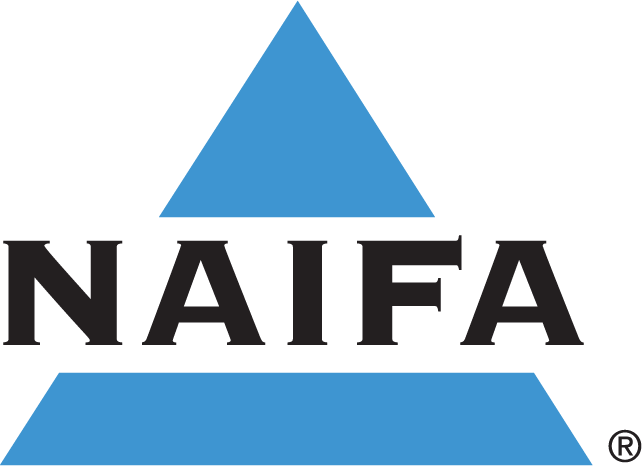The current federal government shutdown, which has put 800,000 federal workers on unpaid status, underscores the need for Americans to have a financial cushion in place to help them cope with life’s uncertainties. Many of the workers affected by this shutdown are now filing for unemployment and learning how to live on a reduced income—or what is worse—a nonexistent income.
NAIFA President Jill Judd, FSS, LUTCF, explains how what she and other NAIFA members each day — create solid financial plans for their clients – helps them prepare for a rainy day and for a sound financial future.
NAIFA: Are any of your clients affected by the current federal shutdown?
Judd: This shutdown, and the effects it is having on thousands of Americans, is putting the spotlight on the need for all Americans to have solid financial plans in place. In our practice, we always advise clients to have at least three to six months of living expenses in liquid assets to help them get through any of life’s uncertainties.
This money will help them meet their financial obligations, alleviate some of their anxiety, and help them sleep better at night. Also, access to these resources will prevent many of them from tapping into their retirement funds and jeopardizing their financial future.
For Americans who are affected by the shutdown and are struggling financially because they have little or no financial cushion, advisors should advise them to contact their mortgage lenders, banks and credit card companies to tell them about their circumstances.
The Office of Personnel Management has posted on its website sample letters that federal employees can send to creditors and mortgage companies. Some federal credit unions are also offering generous loan terms.
Shutdowns are not new to federal workers. Many of them went through them in 2013, as well as in other years. And with a divided Congress, the likelihood of other shutdowns is not low.
Regardless of where their clients work, advisors need to stress to them the importance of having a good savings strategy, as well as a sound financial plan. The ultimate goal of a financial plan is to create a process that helps consumers reduce their financial stress about money, supports their current financial needs, and secures a comfortable retirement.
TOPIC LIST :
- Federal Advocacy (257)
- State Advocacy (202)
- Insurance & Financial Advisor Regulation (108)
- Grassroots (106)
- Congress (89)
- Standard of Care & Consumer Protection (88)
- Legislation & Regulations (61)
- Annuity Best Interest (58)
- Press Release (54)
- DOL (53)
- Retirement Planning (51)
- COVID-19 (45)
- Supported Legislation (45)
- Interstate Advocacy (29)
- Legislative Day (28)
- Congressional Conference (23)
- Health Care (23)
- Tax Reform (23)
- Producer Employment (19)
- Life Insurance & Annuities (18)
- Medicare (18)
- Fiduciary (17)
- Producer Sales & Marketing (16)
- Long-Term Care (15)
- SEC (15)
- Advocacy (14)
- Financial Literacy (14)
- NAIC (14)
- Producer Licensing & CE (14)
- Advocacy Partnerships (13)
- CMS (12)
- Remote Notarization (11)
- IRS (10)
- Member Spotlight (10)
- Regulation Best Interest (10)
- Taxes (10)
- Diversity (9)
- New Jersey (9)
- Washington (9)
- Advocacy Resources (8)
- Data Security (8)
- NAIC Model Regulation (8)
- NAIFA CEO Executive Summary (8)
- NCOIL (8)
- SECURE 2.0 (8)
- Small Business (8)
- State-Facilitated Retirement Plans (8)
- Wisconsin (8)
- California (7)
- IFAPAC (7)
- Iowa (7)
- PRO Act (7)
- Privacy (7)
- Senior Financial Protection (7)
- Tennessee (7)
- Build Back Better Act (6)
- Compensation Regulation (6)
- Massachusetts (6)
- New York (6)
- Opposed Legislation (6)
- Florida (5)
- Licensing (5)
- Maine (5)
- Texas (5)
- White House (5)
- Colorado (4)
- Georgia (4)
- Get Out the Vote (4)
- Group & Employee Benefits (4)
- Maryland (4)
- Medicare Part D (4)
- Nebraska (4)
- North Dakota (4)
- Paid Family Medical Leave (4)
- Alabama (3)
- Arizona (3)
- Awards (3)
- FINRA (3)
- Idaho (3)
- Illinois (3)
- Indiana (3)
- Kentucky (3)
- Life Insurance Awareness Month (3)
- Michigan (3)
- Montana (3)
- New Mexico (3)
- North Carolina (3)
- Promoting Financial Security (3)
- Property & Casualty Insurance (3)
- Short-Term Insurance (3)
- Technology (3)
- Underwriting & Risk Classification (3)
- Utah (3)
- Virginia (3)
- Webinar (3)
- #NAIFAProud (2)
- Affordable Care Act (2)
- Annuity Awareness Month (2)
- Arkansas (2)
- COBRA (2)
- Connecticut (2)
- Delaware (2)
- Financial Security (2)
- Louisiana (2)
- Message From the CEO (2)
- Minnesota (2)
- Missouri (2)
- NIPR (2)
- Ohio (2)
- Oklahoma (2)
- Oregon (2)
- Retirement (2)
- Small Business Administration (2)
- WIFS (2)
- August In-Districts (1)
- Continuing Education (1)
- Education (1)
- Federal Deficit (1)
- FinTech (1)
- Financial Planning (1)
- Future Leaders (1)
- Hawaii (1)
- Individual Retirement Accounts (1)
- Industry News (1)
- Insured Retirement Institute (1)
- Investing (1)
- Kansas (1)
- Leaders (1)
- Life Happens (1)
- Lifetime Healthcare Center (1)
- Limited & Extended Care Planning Center (1)
- Long-Term Care Insurance (1)
- Marketing (1)
- Medicaid (1)
- Mississippi (1)
- NAIFA Partner (1)
- NAIFA-Dallas (1)
- NAIFA-NJ (1)
- NASAA (1)
- Natural Disasters (1)
- New Hampshire (1)
- Practice Management (1)
- Preparedness (1)
- Retirement Plans (1)
- South Carolina (1)
- South Dakota (1)
- Vermont (1)
- Veterans (1)
- Washington, D.C. (1)
- West Virginia (1)
- Women (1)







